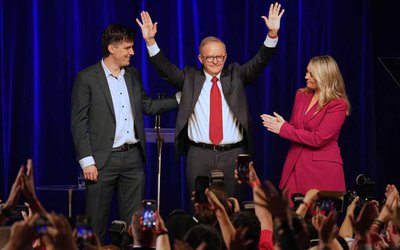
How do you look at the recent controversy regarding the service charges?
This is not an issue at all. However, the issue emerged when trade union groups demanded release of all 10 percent service charge levied on tourists. Tourists visiting Nepal have been paying additional 10 percent charges in hotel and restaurants and this is now mandatory. Following the decision of Indian Supreme Court, India scrapped it. Nepal also needs to scrap the service charge, which has already made Nepal’s tourism expensive.
How do you take the demand of the trade unions, protesting against the management, and asking for the entire service charge being levied on consumers?
When we have been saying that there is the need to remove service charge as a burden on consumers, there is no question about who will share how much. When hoteliers signed the agreement with trade unions in 2006, the situation was different. As per the agreement, the trade unions and management shared 68 per cent and 32 per cent of the service charge, respectively.
How do you see the current threat of trade unions to strike while demanding more facilities?
As the salary and allowance of the employees in hotels and restaurants are adjusted every two years, there is no rationale behind the protest by trade unions seeking the entire amount levied as service charge. At a time when tourism industry is recovering gradually from the setback of earthquake, any disturbance and uncertainty in the industry will send a negative message to the globe. Hospitality industry is very sensitive. Taking into context the removal of such charge in neighboring India, the hospitality business in Nepal also needs to think about removing such service charges, according to HAN.
What is the state of negotiation?
We held several rounds of meeting. We are narrowing down our differences. All trade unions know the consequences of strikes. Thus, trade unions are talking with good spirit.
What is the state of tourism?
Tourism is on a path of revival. Given the recent trend, what I can say now is that the tourist arrival has reached at the pre-earthquake level. The number of tourist arrivals will be around 800,000. There will be 4000 new rooms added by 2020 by three, four and five starts hotels, including Sheraton and Hilton. In 2012, 803,000 visited Nepal.
Don’t you see the possibility of increasing the number of tourists?
This is a symbol of normalization. There were 790,000 tourists in 2014. The number dramatically declined in 2015 due to earthquake as only 538,000 tourists visited Nepal. The year 2016 revived our hope to see tourism industry in pre-earthquake situation. Last year, 753,000 tourists visited Nepal. The last three months of tourism arrival trends of 2017 show that there will be over 800,000 tourists coming to Nepal in the year.
How about the number of rooms available for accommodation?
Nepal has enough rooms to accommodate 2 million tourists right now. Given the congestion in Tribhuwan International Airport, Nepal is unable to increase the airlines. As there is growing domestic and international air traffic, aircraft are held for half to one hour in the sky due to rush in the traffic at TIA.
What do you suggest then?
Until the operation of another international airport, TIA needs to be operated for 24 hours. Similarly, there is also the need to accelerate the construction work on Gautam Buddha International Airport and TIA expansion project, which has now gotten stalled due to cancellation of contract.
How conducive is the environment in Nepal for investment in tourism sector?
The environment is not very conducive. There are so many problems in hotel sector. Growing radicalization of trade unions is harming the investment climate. Due to radicalization of labor that puts unnecessary demands threatening to shut down or padlock hotels, new investors are reluctant to invest. There is the need to reduce such tensions.
How do you look at the relations between hotel management and labors?
Hotel management and laborers are two wheels of a bicycle as both the wheels are necessary to move on. Thus, one cannot be separated from the other. Investors and labor unions need to stand together for the betterment of the economy and industries. However, the situation is completely different. Instead of looking at each other in complimentary and supplementary roles, labor unions regard us differently. This mentality needs to change. If hotels perform well, it will generate resources. Industrialists have never declined genuine demands of labor unions. If the cow gives milk, it will feed everybody. If we kill the cow, we will all lose.
How do you see the growing tension of the two in the recent times?
Growing trade unions have badly damaged the industries. Due to over economic burden, three old star hotels were shut down. Hotel Narayani, Hotel Blue Star and Hotel Sherpa were shut down. Due to growing economic liability, old hotels are in financially difficult position. Globally, the hotels spend around 12 percent in staff salary. However, some old five starts hotels in Nepal are spending over 50 percent of their income to pay salary.
I don’t think this country has any agenda other than politics. Nobody dares to listen to us. This is very unfortunate.
How do you see the contribution of the tourism sector?
Tourism sector is the second major contributor of foreign currency after remittances. Although the government budget indicates, our contribution is just over 4 percent in GDP. If we do an estimation on the basis of World Tourism Organization Model, the contribution will go much higher. According to WTO, one tourist can provide direct and indirect job to 11 people in different sectors. There are over 300 hotels, resorts and guesthouses of Nepal as members in Hotel Association Nepal. In formal sector alone, these hotels provide employment to large numbers of educated Nepali. Star hotels employee more than 500,000 with thirty percent female. There is high participation of female in hospitality industry.
Nepal’s hotel industry paid high salary to its staff compared to other industries. It is a very lucrative job. A lowest level employee of a big five star hotel draws up to Rs. 4,000.00 salary and other benefits per month. If it includes other benefits and percentage of service charge, it goes up to 40,000.00 . Hotel industry requires huge investment. According to current market price, one needs to invest around per room 10 million rupees for five star hotels.
Are you negotiating now?
We have been discussing with officials of 3 major Trade Unions affiliated to CPN UML, Nepali Congress and Maoist Center, REBAN President and Officials and HAN Officials. We discussed various aspects of Service Charge. A working group is now holding the meeting. The working group, comprising representatives of HAN, REBAN and Trade unions, will carry out a detailed study of the service charge and evaluate the provision of levying service charge and its impact to the consumer, management and labors and make necessary recommendation.
- MELAMCHI WATER SUPPLY: No Interruption During Monsoon
- Jun 25, 2025
- KOREAN RETURNEES: Successful Integration
- Jun 25, 2025
- UPPER TRISHULI-1: Engaging With Local
- Jun 25, 2025
- IME GROUP: Twenty Five Years Of Journey
- Jun 24, 2025
- NEPAL’S AIR POLLUTION: A Growing Health Concern
- Jun 24, 2025















